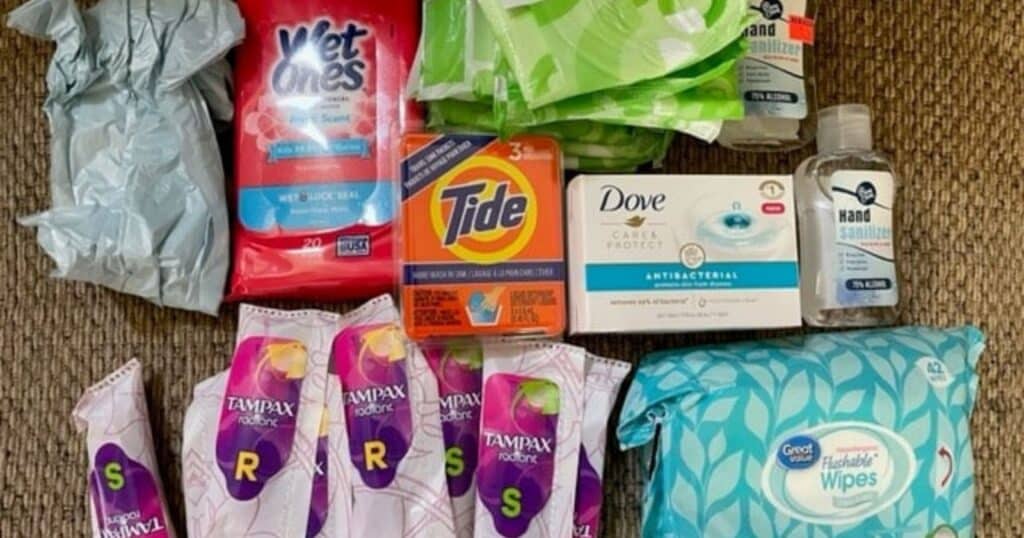Support menstrual justice with ‘Period Packs’ donations, kits for General Synod
Menstruation is a normal, healthy bodily function for half the world’s population. But not everyone who gets a period can afford the hygiene products.
That’s why the United Church of Christ is planning to create menstrual hygiene kits or period packs as a General Synod 34 service project.
“Period poverty affects many in the United States and worldwide who cannot afford menstrual hygiene products such as pads, tampons and products that promote healthy practices,” said the Rev. Monica Dawkins-Smith, executive associate for UCC Wider Church Ministries and coordinator of the project for General Synod. “Recent studies show that two in five people who menstruate experience period poverty.
“As an offshoot of the Thursdays In Black campaign to end gender-based violence, we want to provide free access to essential period products to help vulnerable people facing period poverty so they can avoid using unsanitary alternatives or making unsafe choices to earn income to purchase these products.”
‘An important topic globally’
Menstrual hygiene items are not covered by U.S. government assistance programs, and while states are working to expand access to menstrual products, more needs to be done.
“Period poverty has emerged as an important topic globally,” said Associate General Minister the Rev. Karen Georgia Thompson. “Each month, as women experience their menstrual cycles, many do not have access to the resources to allow them to have proper menstrual hygiene.
“The lack of access to menstrual products and proper education has elevated the need for menstrual justice to ensure that individuals who are menstruating know how to care for themselves and have access to the products they need.”
The UCC is partnering with Church World Service on this Synod mission project. Last fall, CWS added period packs to its lineup of emergency service kits. Local churches and other groups quickly stepped up to make period packs for distribution by CWS and in their area communities with the help of available UCC matching grants. The gathering in Indianapolis June 30-July 4 provides a larger way to address menstrual justice as the wider church.
‘Now is the time’
The UCC and CWS hopes to collect and assemble kits at General Synod at the Indiana Convention Center, with a goal of amassing 1,000 period packs by July 4. The national setting is already taking donations — collecting seed money for necessary supplies — and Synod attendees are invited to bring assembled kits to donate to the service project.
Products to be included in the packs include pads, tampons, soap, wipes, detergent sheets and hand sanitizer. More information on assembling the kits can be found here. Synod drop-off locations will be available for already assembled kits. Online donations to the Period Pack/Menstrual Hygiene Kit project will provide supplies needed to create kits on-site.
“Menstrual justice ensures the dignity of those whose lives are affected by period poverty,” said Thompson. “My hope is that the UCC will attend and address this need in our communities. This is another way in which poverty is disrupting the lives of people — primarily women and girls. We are people who have strong commitments to justice. Menstruation has long been a taboo subject and one that has caused shaming; now is the time for seeking justice and being witnesses to seeing a just world for all.”
Content on ucc.org is copyrighted by the National Setting of the United Church of Christ and may be only shared according to the guidelines outlined here.
Related News
A Prophetic Call for Justice and Peace in Palestine
The executive leaders of the United Church of Christ have issued the following statement...
Read More‘Love is Greater Than Fear’: Regional Youth Events get to the heart of gospel message
United Church of Christ teens attending this summer’s Regional Youth Events (RYE) are...
Read MoreUCC desk calendars available to order now
Prepare for your day, month and year with the United Church of Christ desk calendar —...
Read More


